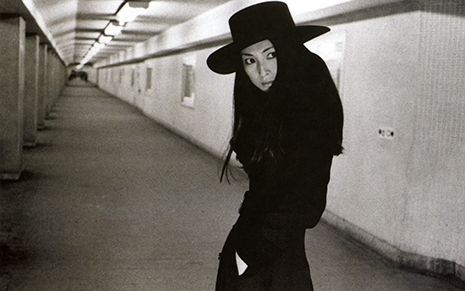
Most days if you ask me to name my favorite actress, I’m going to answer Meiko Kaji.
The Japanese singer and star of dozens of films, notably the Stray Cat Rock series and the Lady Snowblood movies, is a haunting beauty with a commanding screen presence, able to convey more with one squint of her eye than most actors could in an entire page of dialogue.
I was thrilled to learn that my favorite Blu-Ray label, Arrow Video (who I’ve professed my love for on this blog before) is releasing my top-pick Meiko Kaji film, Female Convict Scorpion: Jailhouse 41 in a glorious 2K HD restoration as part of a box set along with the three other films in the Scorpion series.

Arrow’s box set of the “Scorpion” films is available for pre-order HERE.
The entire Scorpion, or Sasori series, which consists of the films Female Convict 701: Scorpion, Female Convict Scorpion: Jailhouse 41, Female Convict Scorpion: Beast Stable, and Female Convict Scorpion: Grudge Song are all visually striking early ‘70s Japanese exploitation films filled with violent imagery, but it’s the second film in the series that goes well above and beyond the genre.
Female Convict Scorpion: Jailhouse 41 contains all of the stock violence, humiliation, and revenge elements of the women-in-prison formula, but director Shunya Ito’s stylized manga-inspired set-pieces, camera techniques, and avant-garde compositions are downright lysergic at times. The film tends to transcend its own narrative, becoming a stunning dreamscape, rising above its lowbrow subject matter to become a profoundly important cinematic vision. A vision that, sadly, many will write off due to the fact that it’s, well, a women-in-prison flick.
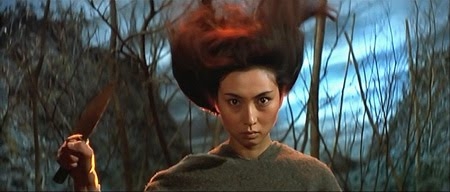
I curate a long-running cult film series at a local arthouse, and had the pleasure of presenting Female Convict Scorpion: Jailhouse 41 to a packed theater who, by and large, had never seen the film before. I’ve had several patrons tell me since that it is now one of their favorite films.
In the film Matsu, nicknamed “Scorpion,” is hogtied in solitary confinement due to her willfully rebellious nature. Little do the warden or guards know that even tied, Scorpion has been creating a shank by holding a spoon in her teeth and sharpening it by scraping on the concrete floor. Scorpion is trapped in a never-ending cycle of violent rebellion and brutal reprisals, but nothing can break her. Eventually she escapes prison with six other female inmates, leading them on a violent rampage, exacting ruthless revenge on the men who have wronged her.
Director Ito has described the Scorpion character as “the ultimate rebel.” Much like Eastwood’s “Man With No Name,” Matsu barely speaks a word throughout the entire series. She’s an absolute outsider, completely unbreakable, single-mindedly dedicated to revenge, and, perhaps, the most graceful yet savage feminist anti-hero ever to glare at an audience from the silver screen.
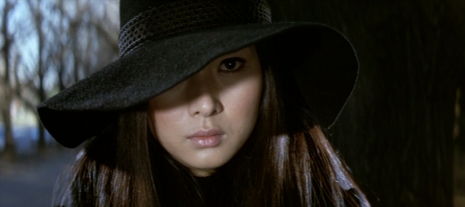
The recurring theme song of the Scorpion films is the evocative “Urami-Bushi” which became a hit song and is sung by Meiko Kaji herself. Quentin Tarantino liked it so much he pilfered it for Kill Bill.
Here’s Meiko Kaji performing the song on Japanese televison:
More after the jump…






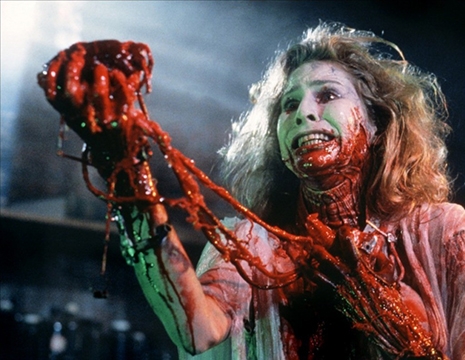
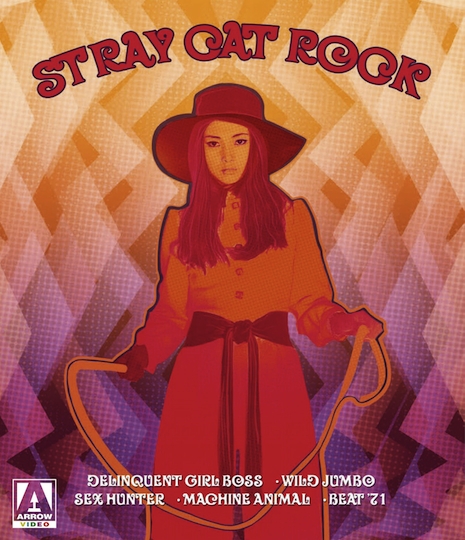
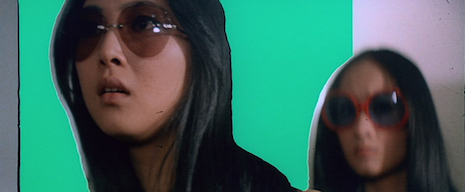
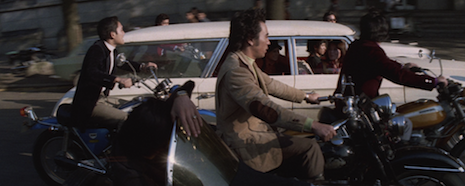
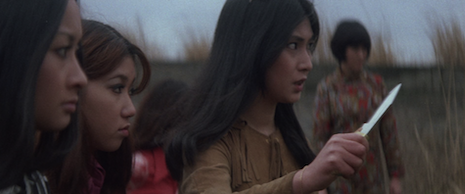
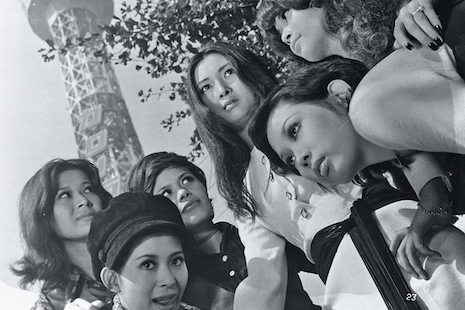
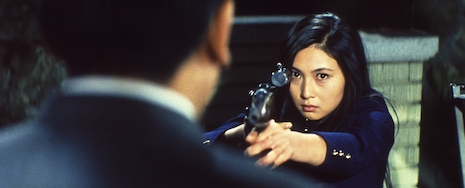
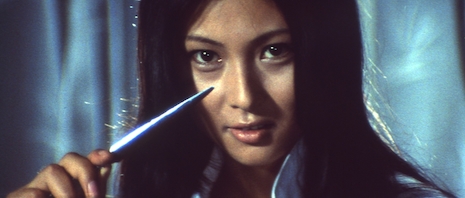 Meiko Kaji in ‘Sex Hunter’
Meiko Kaji in ‘Sex Hunter’